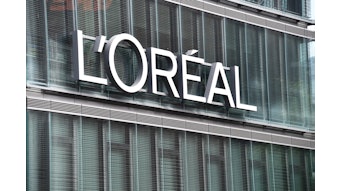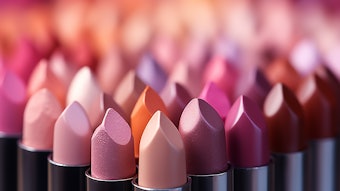During the first half of 2009 (January–June), beauty sales in Brazil recorded an increase of 18%, according to the Brazilian Association of the Cosmetic, Toiletry & Fragrance Industry (ABIHPEC). Based on these results, the association revised its growth forecast for 2009. “The sector’s performance in the first half year was far above our expectations,” said João Carlos Basilio, president, ABIHPEC. “As sales are traditionally more significant in the second semester, we can anticipate an [actual annual growth] of 11% or more.”
Basilio listed a number of reasons why, despite the global economic downturn, the Brazilian beauty industry has maintained its rapid rate of development. “There is an important economic and financial factor to be considered: worker income has not been compromised. This has, by and large, preserved purchasing power, and the industry does not depend on credit but rather on income,” said Basilio. “There is also a cultural aspect in play, considering that hygiene is a habit that has become part of the routine of the population and strongly impacts the concept of preserving health. In addition, caring for one’s looks helps preserve a positive social image, and also weighs importantly in one’s work environment.”
He also highlighted that beauty companies, as a whole, have decided to maintain investments. Launches and R&D continued at the pace of previous years. “The industry has invested heavily in marketing and advertising, which contributed to reinforce its connection to consumers,” Basilio concluded.
In 2008, the Brazilian beauty industry recorded sales of $10.8 million and growth of 10.6% over 2007. Coincidentally, the average annual increase of the sector in the last three years was also 10.6%.
Natura Opts Out of Venezuela
Despite growth of 19% in the second quarter of 2009, Natura has opted to discontinue its activities in Venezuela. Though the company announced that investments in Mexico and Colombia will be maintained, its plans to begin operations in the U.S. were also postponed.
According to data from Natura’s quarterly report, the Venezuela operation, which was still in the process of development, recorded a loss of $2 million. The company has also registered negative results in other non-Brazilian countries where it operates—Peru being an exception. New capital investments in Chile, Argentina, Mexico, Colombia, the Netherlands and in the company’s Natura Europe subsidiary will total $26.7 million in 2009. Brazilian operations accounted for 93% of sales April–June.
Franchising Remains Viable Option for New Beauty Brands
According to the Brazilian Association of Franchising (ABF), franchising remains a viable option for companies looking to enter or expand participation in the Brazilian beauty market. Beauty is one of the industries that has shown the greatest growth rates in the Brazilian franchising channel. In 2008, it increased 25.8%, reaching revenues of $4.3 billion.
“This is the second most distinguished segment in number of franchises in Brazil, second only for food. It has more than 12,000 outlets throughout the country,” said Sergio Barbi, director, ABF.
Second largest franchisor in Brazil’s beauty sector, L’Acqua di Fiori operates more than 1,100 stores and aims to open 100 new outlets by the end of the year. According to company communications director Carlos Mesquita, the initial investment for opening a new franchise varies between $40,000 and $50,000, and the profit margin is approximately 114%.
Mahogany, a traditional fragrance brand, also contributed to the channel’s growth. It adopted a franchising system in 2005, and now has 63 stores and is investing to reach 110 points of sale in 2010.
Mahogany is among the beauty companies contributing to the growth of franchised businesses in Brazil. It adopted a franchising system in 2005, and now has 63 stores and is investing to reach 110 points of sale in 2010.
Oral Care to Gain 34.7% in Three Years
According to research by Euromonitor International, the Brazilian oral care market is expected to grow approximately 34.7% by 2012. It is a rather favorable estimate considering the maturity of this segment, which has already reached 95% of Brazilian households.
Mouthwash led the growth forecasts (78.3%), while toothpaste, which currently accounts for 61% of the market, is expected to keep leading sales. However, due to toothpaste’s high penetration in the market, growth will be more modest (23.3%).
Beauty Additions to Weleda Brasil’s Offerings Adds 6% to Its Revenue
Known for its natural products, Weleda Brasil is redirecting investments to the beauty sector. Inspired by the company’s French showroom, all 14 Brazilian brand doors will be rethought. The initiative, which is forecast to cost $1 million during the next two years, is part of the company’s new strategy to increase its portfolio and expand the number of points of sale.
“The culture of buying natural products is now spreading in Brazil,” said Mara Pezzotti, president, Weleda Brasil. But, according to Pezzotti, the company doesn’t intend to compete directly with market leaders Natura and Avon.
Since 2007, the Brazilian subsidiary has been preparing itself to put in practice a plan to increase its market share. Weleda dropped some high-cost, non-beauty products with limited commercial acceptance from its offerings, which reduced the overall cost of production by 14%. In contrast, new beauty products were added and helped to increase the company’s revenue 6%. Weleda Brasil’s growth target for 2009 is 25%—10% higher than the company’s global goal.
Beauty Point Aims for 60 New Points of Sale
Sales network Beauty Point, created by the wholesaler EBC Atacado de Cosméticos and its associates toward strengthening retail brand recognition, expects to add 60 points of sale (to reach 90 beauty outlets) in the greater São Paulo area by June 2010.
The project was launched in April from the union perfumeries and other small retailers. “Beauty Point created a bridge linking the industry and merchants and [providing them another means] to foster their relationship with consumers,” said Murilo Marcacini, manager, Beauty Point. “Our proposal is to offer convenience, variety of products and competitive prices.”
According to Marcacini, the network is expected to reach other Brazilian states soon. “With a large number of points of sale operating with the same quality under the same brand, we will be able to solve retailers’ main problems and strengthen the sector,” Marcacini said.
Fernanda Bonifacio is a Brazilian journalist who focuses on the beauty industry, and has been published in the U.S. and Europe. During 2002–2008, she represented ABIHPEC and its member companies globally.










